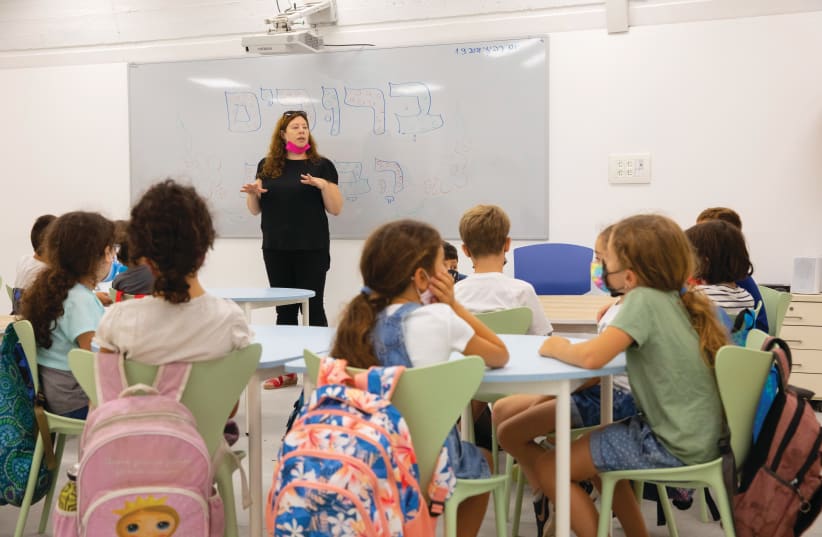Israelis are divided if judicial reform should be discussed in schools if both sides of the debate are presented, an Israel Democracy Institute survey released Friday found.
Overall 60% of Israelis were in favor of discussions on the legal overhaul from different viewpoints. Among those who supported the ruling coalition, 45% were in favor, whereas 78% of opposition supporters believed it was necessary.
These results were similarly expressed in breakdown by political orientation, with left and moderate left participants 86% and 80% in support of such discussions. 43% of right-leaning individuals were in favor of the discussions, but 61% and 62% of those that were categorized as moderate-right and center were in favor.
Secular Jews were more likely to be in favor of classroom discussion of different judicial reform viewpoints, with only 27% opposed. Religious Jews, ranging from ultra-orthodox to traditional but not religious were only 42%-47% in favor of the discussions.
70% of Arab Israeli agreed that it was important to discuss the judicial reform and its implications, higher than 57.5% of Jewish Israelis.
IDI also asked respondents if they felt it was important for teachers to educate "toward democracy." 70% of Israelis agreed with this sentiment, but when broken down politically, 95% of left-wing respondents agreed, while 66.5% of those on the right and 75% of centrists agreed.
How did the breakdown of these statistics look?
The breakdown was more dramatic among religious groups, with 46% of haredim agreeing that teachers should educate "toward democracy" compared to 85% of their secular peers. 60.5 of national religious Jews agreed, 72% of traditional religious Jews agreed, and 66% of traditional Jews agreed.
The survey was conducted through the internet and phone between July 30 and August 1, 2023, with a sample size of 615 representing Israeli adults over 18. The maximum sampling error was ±3.55% at a confidence level of 95%.
The survey came both as students returned to school on Friday and after a week of protests against the government's education programs.
Student Protest activists barred access to the Education Ministry offices on Thursday morning by tying themselves to the doors.
"We are here to fill the seat of the Education Ministry director which has been empty since Asaf Tzalel's brave decision to leave," said the Student Protest. "While the education system is in a crisis and on the verge of strike because of years of negligent neglect by Israeli officials, Minister Yoav Kisch is allowing racist Avi Maoz to inject racist and anti-democratic messages into Israeli education. The Education Ministry is becoming an instrument for the judicial overhaul."
Tzalel resigned from his post in July but said that he was not taking a side in the debate.
Last Friday the Education Ministry introduced a lesson plan called “Education for all opinions – learning to manage disputes,” which was designed to address social divisions and disputes in Israeli society, including the judicial reform.
A slideshow explains both sides of the judicial reform debate, including key disputes like the Judicial Selection Committee and the override clause.

